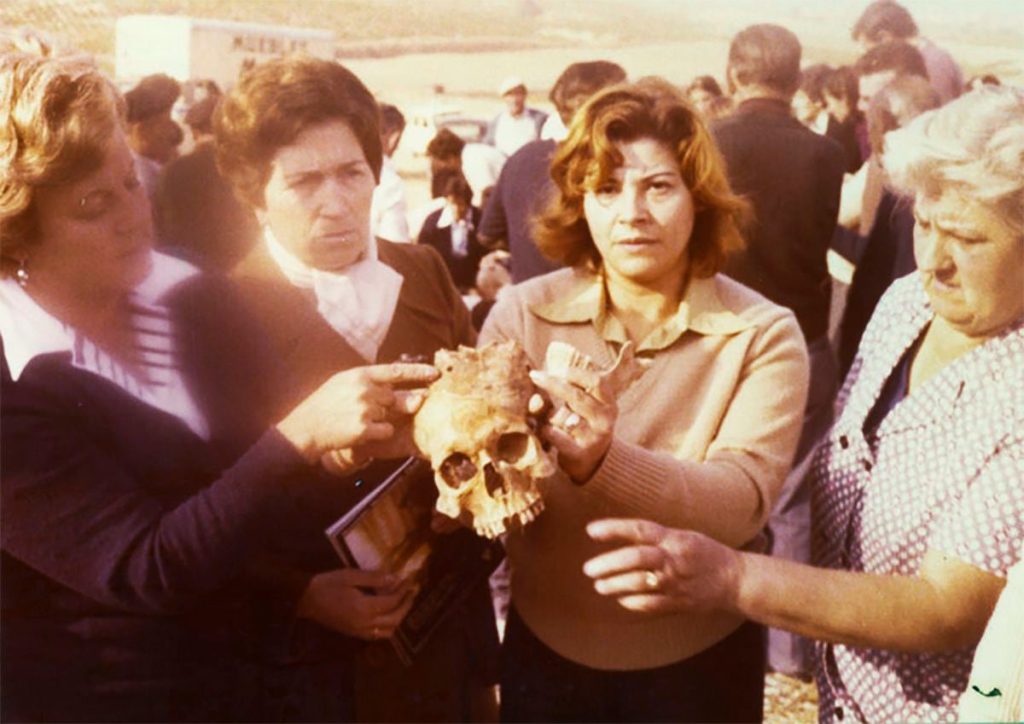Evaristo Pérez Luquin was murdered on August 23, 1936 at ten-thirty at night in Cadreita, Navarra. He was buried in a mass grave in the Corral de Valcaldera, but it is suspected that his remains were moved to the Valle de los Caídos in Madrid in 1959, along with 59 other unidentified bodies. Mariano Erice Urabayen, a 24-year-old man from the Navarrese town of Villava, underwent a military trial in Bilbao on December 20, 1937 and was sentenced to death and fined 2,000 pesetas for treason. He was pardoned in 1959 for the crime of being affiliated with the PNV. The Oroibidea-Camino de la Memoria database contains a total of 23,053 individuals who were repressed during the Spanish Civil War and Francoism, offering a digital archive open to the public that tells the stories behind each name.
The government of Navarra, led by socialist María Chivite, defends the categorization of this virtual space as a memory site because it contains testimonies of individuals who were repressed or killed in a physical location, such as a mass grave. Jose Miguel Gastón, director of the Navarrese Institute of Memory, explains that Oroibidea collects these voices and contextualizes them, giving voice to the families of the victims, displaying historical photographs, and documenting the lives and deaths of those who were shot, imprisoned, forced laborers, or victims of economic repression. The database includes detailed information on individuals like Tomás Burgos Cabezón, offering documents, videos, photographs, interview fragments, bibliographic references, and a comprehensive judicial history. Users can search for the story of each victim by entering their name, and the information is available in Spanish, Basque, English, and French.
Navarrese Councilor for Memory and Coexistence, Ana Ollo, highlights the importance of combining the complexity of documentation work with the simplicity of searches in order to guarantee the rights of victims and their families to the truth, as well as the rights of citizens to know the brutal truth of a terrible past that began in July 1936 and lasted for 40 years of dictatorship. The Navarrese Institute of Memory and the Documentary Memory Fund, part of the Public University of Navarra, have led the research efforts that have significantly increased the personal and bibliographic references of thousands of repressed, exiled, or murdered Navarrese individuals. The database also includes a map of georeferenced mass graves with 244 locations across Spain, as well as prisons, concentration camps, and battalions. The goal is for the archive to serve as a foundation for a national-level tool that pays homage to those who fought against Francoism.
Through the work of the Navarrese Institute of Memory, the government of Navarra hopes to create a virtual space that remembers and honors those who resisted Francoism, providing a platform for truth, remembrance, and reconciliation. The archive seeks to combat powerful interests that seek to distort, trivialize, and deny the crimes of the Franco regime, ensuring that the memory of the victims is preserved and shared with future generations. By documenting individual stories and providing access to historical documents and testimonies, the Oroibidea-Camino de la Memoria database hopes to contribute to a broader understanding and acknowledgment of the atrocities committed during the Spanish Civil War and the era of Francoism.















